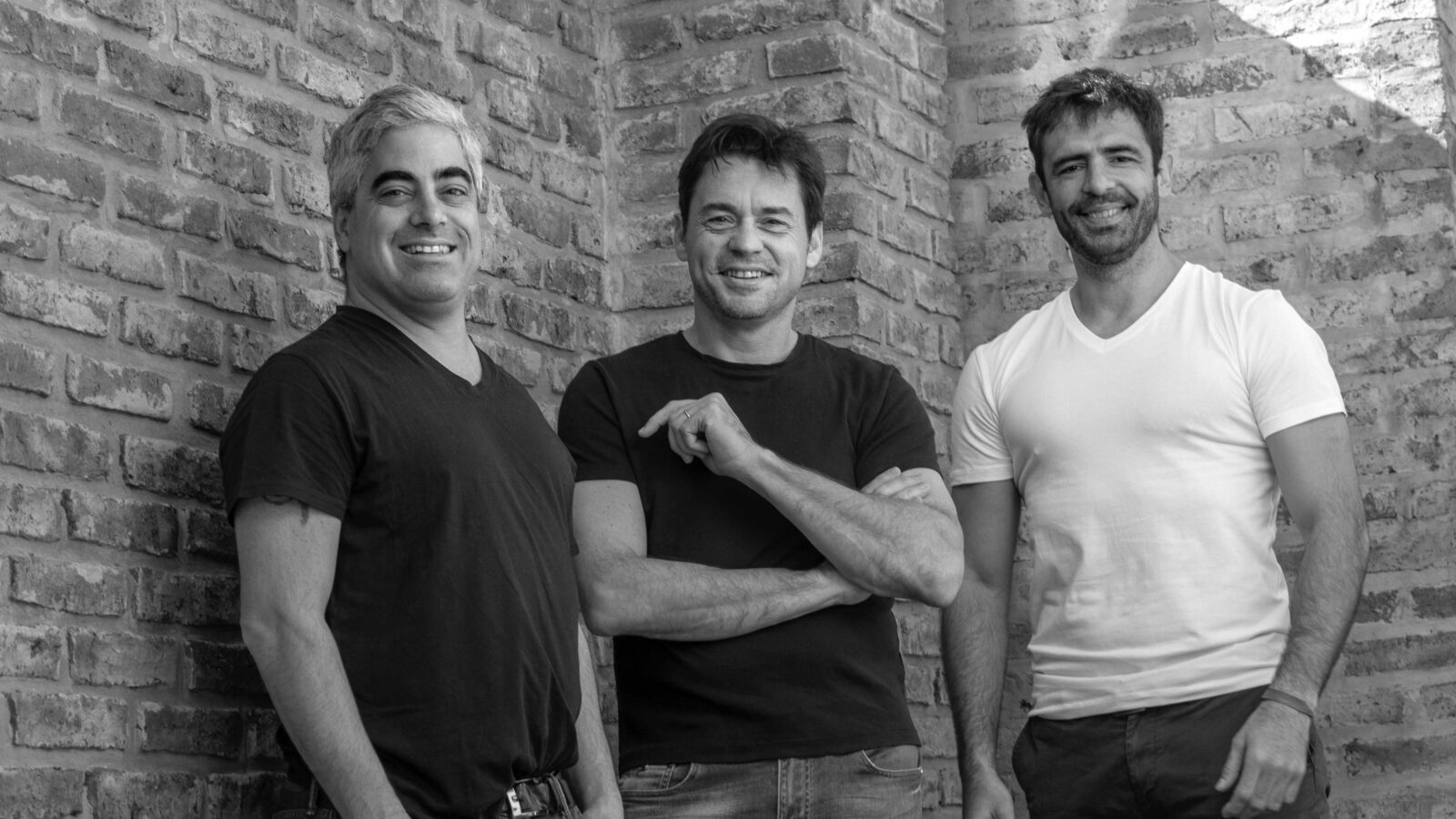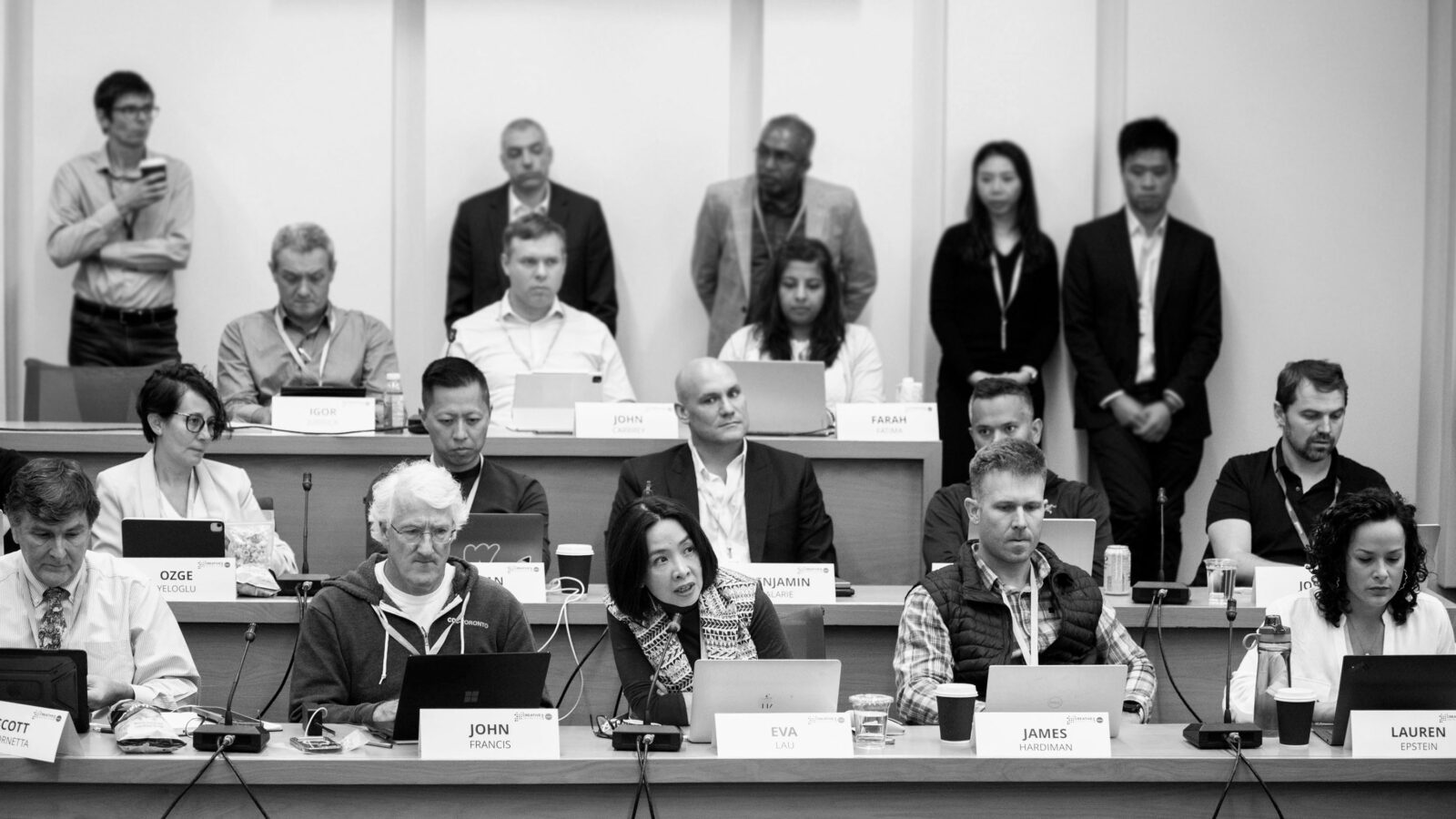What kind of company is well-suited for the Creative Destruction Lab (CDL)? What elements will my company be evaluated on? What will I get out of being part of the program?
These are all questions you’re probably thinking about if you’re considering applying to be part of CDL’s 2018/19 program. The nine-month program for early-stage, high potential startups connects founders with mentors who help sharpen objectives, prioritize resources and raise capital.
The Lab’s Global Recruitment Lead Kristjan Sigurdson has the answers on what it takes to be part of the program. Prior to his current role, Kristjan led the recruitment process at CDL-Toronto for three years. He still recruits companies locally and internationally, and once the applications are in, he oversees the evaluation process, including interviewing companies and working with his team across all 6 sites to make decisions on what the year’s cohort will look like. Kristjan took some time to answer common questions startup founders have about the CDL program and application process.
Who should consider applying?
The type of company we were originally designed to support is one led by a graduate student or scientist-turned-entrepreneur — a founder who has invented something novel with commercial potential. Academic entrepreneurs are a class of entrepreneur that we are incredibly well-suited to support. We’ve had so many success stories. One that comes to mind is Abraham Heifets of Atomwise. He came to us as a graduate student and at this point he’s raised over $50M (US).
Over the years we’ve widened our intake to include many exceptional entrepreneurs who don’t have formal links to a university, but are still leveraging advances in technologies like machine learning or cryptography to build scalable companies. These founders have done quite well and there’s a great cross-pollination that happens between founders in the program coming from these different origins.
Does my company need to be Canadian or have a Canadian connection?
No. This past year, all of our cohorts across the CDL network had multiple companies from outside Canada. We have always maintained a completely open-door policy for companies from anywhere around the world. They don’t have to be linked to the universities we operate from, and they don’t have to be headquartered in the same cities. Participating founders just have to attend the five pre-scheduled CDL meeting days that are really the core of the program.
When you’re looking at an application, what are you looking for?
We’re often looking for some “unfair” advantage — a company that has a patent, or a world leader on a particular technology on the founding team, or unique access to a certain kind of data. In practice, this advantage can be almost anything, it really depends on the industry and the opportunity the founders are pursuing. Having a unique advantage can help a startup get off the ground and and can often help with raising that first round of capital.
Another important attribute is to have an extremely high level of ambition. The road is going to be long and hard, and so we want to see that the founder has the drive to build something massive — to really scale a company.
What will the CDL program do for my company?
We help early-stage companies — often founded by first-time entrepreneurs — to set smart short-term objectives. If you’re admitted to the CDL program, you will show up to the first meeting and you will be immersed in a highly curated groups of investors, experts, entrepreneurs and world-class scientists who will help you decide what to focus your time and attention on. Entrepreneurs wake up in the morning overwhelmed by their to-do lists — what we do is help them pick from that list.
Another thing we can often help with is fundraising. We are not a fundraising-focused program but it happens organically as part of the program that many of our companies raise money. They often do this through our mentors and it’s important because many companies can’t grow without investment.
What’s the role of Fellows and Associates?
The Fellows and Associates are our mentors. They are superstars and we work very hard to find the best in the world. They are the most important part of the program and commit to giving companies their time, and more importantly, their judgment on what to do next and how to do it.
One of the most unique features of the program is that our mentors work together as a group to give advice that is, in some way, peer-reviewed. Maybe there are two or three ways to build a company in a particular industry, and participating founders get to hear about different approaches and be part of a discussion with the mentors about the pros and cons of each.
A majority of our Fellows & Associates are also highly active seed investors.
What’s the time commitment?
The time commitment is one day every two months. You’ll know the dates far in advance. There are five of these in-person meetings per year where we convene our mentors, scientists and founders for an intensive one-day summit in which we help set the next two month’s worth of objectives. There are no exceptions to in-person attendance — CDL mentors fly in from around the world so we have a zero-tolerance policy for founders missing these meetings.
How is CDL different from accelerators and incubators?
For starters, we are a non-profit. Every one of our locations is part of the university it operates in. We don’t provide space, or have a curriculum that we walk founders through. Our program is a little bit longer than your typical accelerator or incubator at nine months in duration.
We also don’t have a demo day. Many programs will try to accelerate a company to a certain end point, a particular date. Our process is much more organic; our companies raise funds when they need to, if they need to.
What’s the role of CDL Scientists?
Our scientists take a look under the hood of the companies that we admit, especially for those building technology at the edge of what is currently thought to be possible. They can provide information to Fellows & Associates about whether a company really needs to focus on improving the technological components of the company or whether they are on track and the mentors just need to focus on building the business side. We leverage the expertise of the scientists on both the quality of the technical talent on the team and the quality of the approach to building the technology. We also provide opportunities and an emerging marketplace for academic researchers to join companies as advisors or formal mentors, which can be a valuable asset for companies on the cutting edge.
Who can I talk to for more information?
If you’re interested in applying, reach out to me and I’ll connect you with the site or stream that if the best fit for your company. If you have connections with founders who have participated in the program this can also help to give you an unbiased view of pros and cons of participating.
Applications for the 2018/19 cohort are now open
—
The Creative Destruction Lab (CDL) is a seed-stage program for massively scalable, science-based companies. The nine-month program employs an objectives-based mentoring process with the goal of maximizing equity-value creation. The CDL is particularly suited to early-stage companies with links to university research labs. Launched in 2012 at the Rotman School of Management at the University of Toronto, the program has now expanded with locations in Vancouver, Calgary, Montreal, Halifax, and New York City. Companies that graduated from the Lab’s first five cohorts between 2012 and 2017 have generated more than $2.5 billion (CAD) in aggregate equity value. CDL graduates include Atomwise (San Francisco), Deep Genomics (Toronto), Thalmic Labs (Waterloo), Nymi (Toronto), Automat (Montreal), BenchSci (Toronto), Kyndi (Palo Alto), Kepler (Toronto), and Heuritech (Paris).





